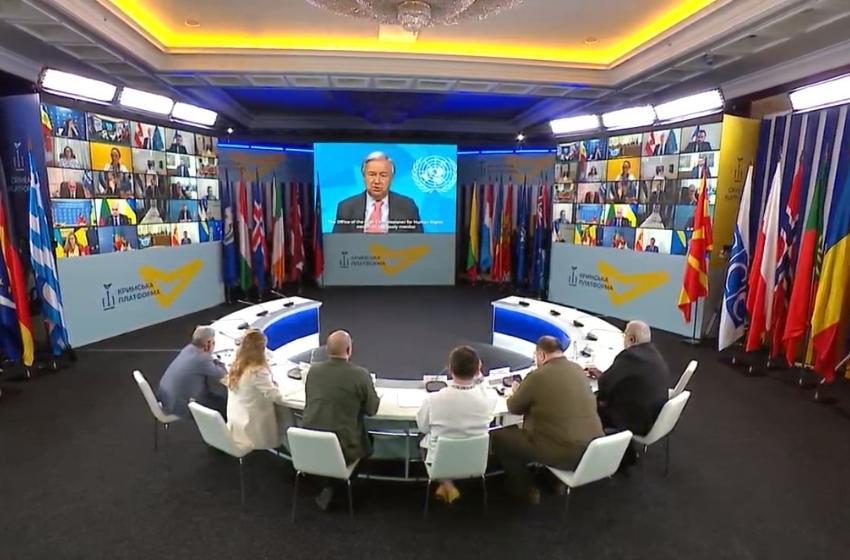This is the second summit of the Crimean Platform – this time, due to the full-scale war with the Russian Federation, it held online. This year there will be more guests of the summit than in the past: more than 60 foreign participants - countries and organizations - have confirmed their participation in the summit.

The Crimea Platform is a new international consultation and coordination format set up to develop the initiative put forward by President of Ukraine and aimed at improving the effectiveness of the international response to the ongoing occupation of Crimea, responding to growing security threats, increasing international pressure on the Kremlin, preventing further rights violations and protecting victims of the occupation regime, as well as achieving the main goal - deoccupation of Crimea and its return to Ukraine.
The degradation of Russia began with the occupation of Crimea. Massive terror after February 24 was the logical conclusion of the degradation of this state, which not so long ago was invited to the table with the G7 and which is now fighting for primacy with the most brutal regimes of the past, responsible for genocides, aggressive wars and deportations
Volodymyr Zelensky

As Ukrainian Foreign Minister Dmitry Kuleba noted, the decision to hold the second summit of the Crimean Platform even during the war is fundamental.
We want to send a very clear message: even if - theoretically - the enemy again stands near Kyiv, we will still plan the de-occupation of Crimea. It is very important to understand that no matter how difficult it is, we must always think strategically. The time will come when we de-occupy their territories, and the summit of the Crimean platform is a signal of just that.
Dmytro Kuleba

The main areas of the Platform’s activity are as follows:
- consolidation of policy of non-recognition of the attempted annexation of Crimea;
- efficiency of sanctions, their strengthening and closing loopholes for circumvention;
- protection of human rights and international humanitarian law;
- ensuring security in the region of Black Sea and the Sea of Azov and beyond, protecting the freedom of navigation;
- overcoming of adverse economic and environmental impact of the occupation of Crimea on the region.



























